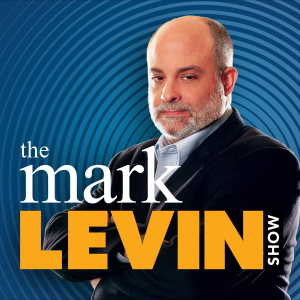

Why Should We Care About the Indo-Pacific?
https://media.rss.com/indo-pacific/feed.xmlEpisode List
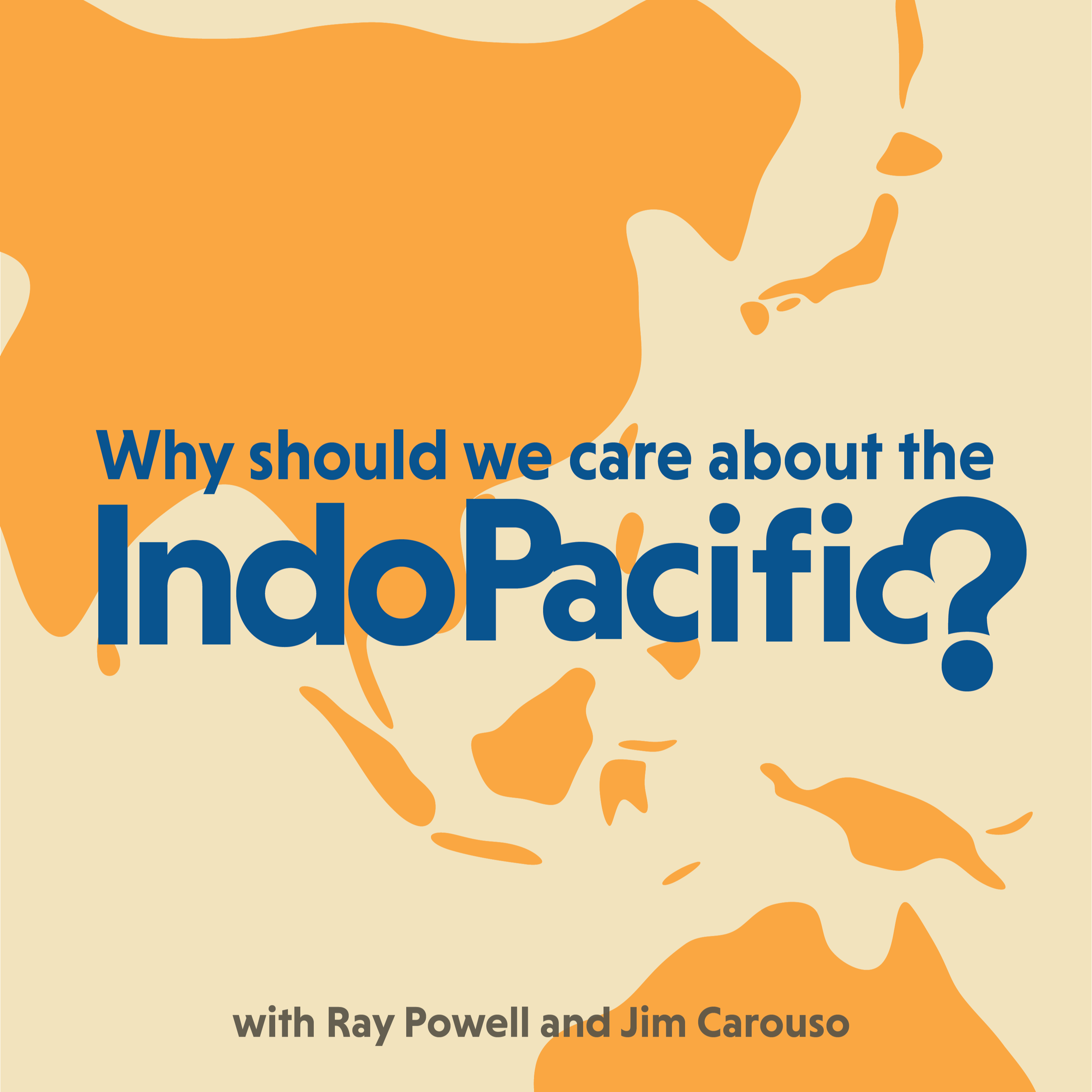
Why Should We Care About Disruption, Division and Competition in the Indo-Pacific? | with James Minnich
In this special, in-person episode, host Ray Powell sits down with James Minnich, professor at the Daniel K. Inouye Asia-Pacific Center for Security Studies and editor of the Center’s new book Edge of Competition: Disruption, Division, and Competition in the Indo-Pacific. Recorded in APCSS’ studios in Hawaii, they dive deep into the region's most pressing geopolitical challenges, exploring how disruption, division, and competition are reshaping global security and economics.James shares insights from the book, highlighting why the Indo-Pacific matters to everyone—from Taiwan Strait tensions and South China Sea disputes to the rise of multipolar dynamics involving China, the US, India, and ASEAN. They discuss whether we’ve reached "peak China," globalization's double-edged sword, ASEAN centrality, spheres of influence and the need for narrative warfare to counter malign influence operations. Plus, James recounts a story from his time at the UN Command Military Armistice Commission in South Korea, blending negotiation tactics with real-world security operations.Whether you're tracking US-China relations, maritime security in East Asia, or broader Indo-Pacific geopolitics, this episode unpacks the ongoing disruptions that are already impacting global trade, technology, and stability. Don't miss this expert analysis on Taiwan, Korean Peninsula security, and strategies for resilience in a competitive world.Key Topics Covered:Disruption in the Indo-Pacific: Peak China debates, Taiwan's semiconductor dominance, and globalization's risks.Division and Multipolarity: India's role, ASEAN communities of interest, and the pitfalls of spheres of influence.South China Sea escalations, South Korea's strategic clarity, and commanding the narrative against political warfare.Mastering the clock, weaponizing resilience, and proactive information strategies.👉 Follow us on X, @IndoPacPodcast, LinkedIn, or BlueSky👉 Follow Ray Powell on X, @GordianKnotRay, or LinkedIn, or check out his maritime transparency work at SeaLight👉 Follow Jim Carouso on LinkedIn👉 Sponsored by BowerGroupAsia, a strategic advisory firm that specializes in the Indo-Pacific
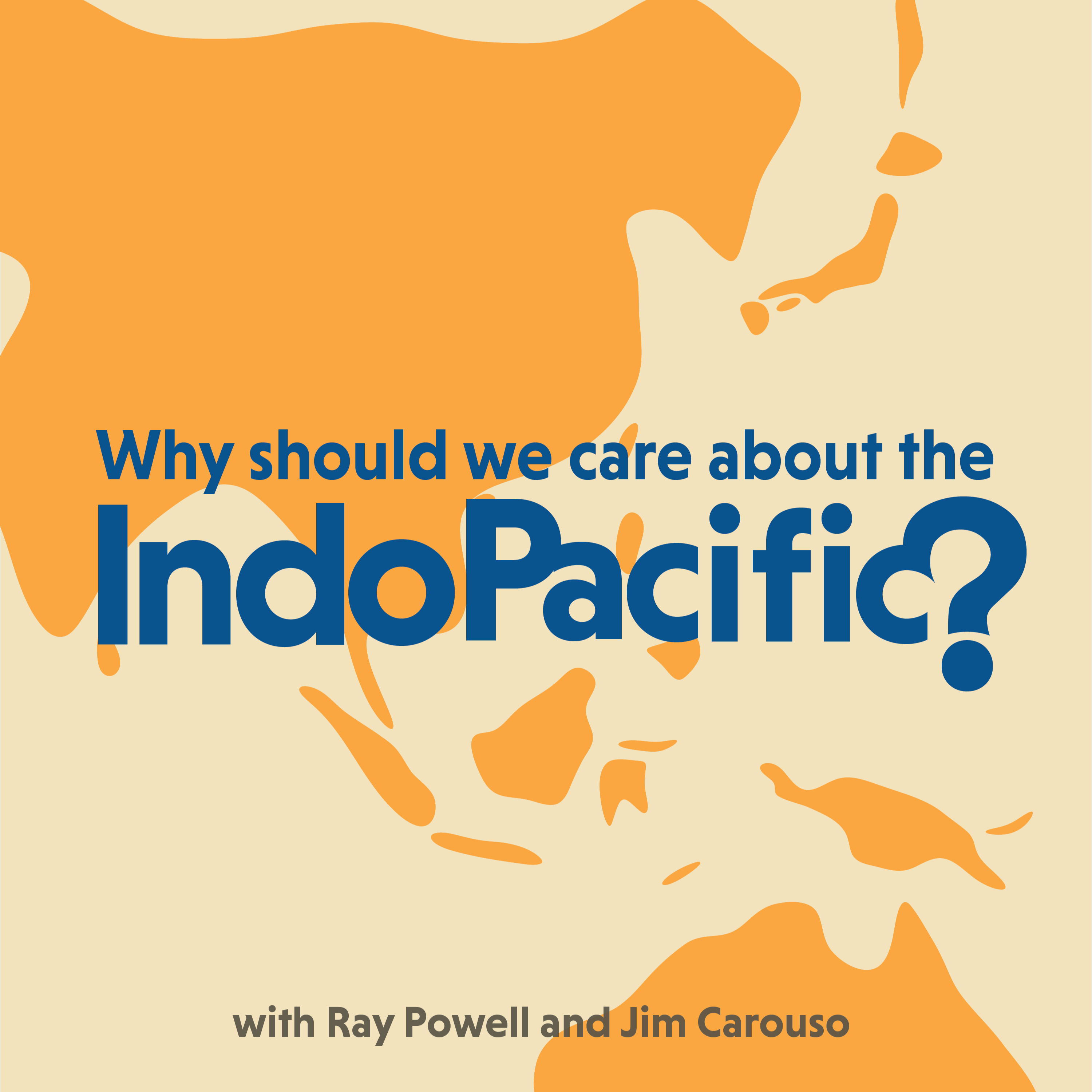
Why Should We Care if China’s Military is Innovating Faster than America’s? | with Steve Blank
In this thought-provoking episode, we're joined by renowned Silicon Valley entrepreneur and defense reform advocate Steve Blank in a sweeping conversation on Pentagon innovation, the U.S.-China technological rivalry, and what it takes for democracies to outpace authoritarian competitors.Key Highlights & Takeaways:Diagnosing U.S. Innovation Stagnation: Steve dissects why the once dominant U.S. defense sector, long-dominated by the big “primes”, got overtaken by bureaucratic inertia—contrasted with China’s highly focused whole-of-nation approach. He examines how factors such as lobbying, revolving doors, and outmoded acquisition systems have played their parts in hampering adaptation to new threats.Hacking for Defense Origins: Steve unpacks how the “get out of the building” lean startup method moved from Silicon Valley to challenging national security problem-solving, birthing the global Hacking for Defense movement that started at Stanford but is now in dozens of universities worldwide.From “Innovation Theater” to Outcomes: The conversation critiques the proliferation of “incubators” unconnected to real acquisition, and highlights how meaningful reform only comes when new tech is linked to actual defense deployment.What’s Changing: Blank describes major reforms currently underway under the new Trump Administration: scrapping legacy acquisition hurdles, empowering innovation-focused leadership, expanding the Defense Innovation Unit, and setting new strategic priorities.Politics and Semiconductors: Steve provides a unique take on the CHIPS Act, Taiwan’s semiconductor leverage, and the evolution of U.S. “industrial policy” as exemplified by the U.S. government’s taking of a direct stake in the Intel Corporation.Practical Advice: Steve and the hosts help surface actionable lessons: embrace private-sector speed, connect innovation directly to field outcomes, and learn from adversaries who now copy America’s best ideas and occasionally outpace them.SeaLight Targeted by Beijing: Steve and Ray banter about how Ray’s innovation project inspired by Hacking for Defense blossomed into the SeaLight phenomenon, and how its success in illuminating China’s “gray zone” activities got both of them targeted by Beijing’s propaganda machine.This essential episode illuminates how democracies can survive and thrive amid global tech rivalry, and what must change if the U.S. hopes to remain a leader in security and defense innovation.👉 Follow Steve Blank at his website👉 Follow us on X, @IndoPacPodcast, or LinkedIn👉 Follow Ray Powell on X, @GordianKnotRay, or LinkedIn, or check out his maritime transparency work at SeaLight👉 Follow Jim Carouso on LinkedIn👉 Sponsored by BowerGroupAsia, a strategic advisory firm that specializes in the Indo-Pacific
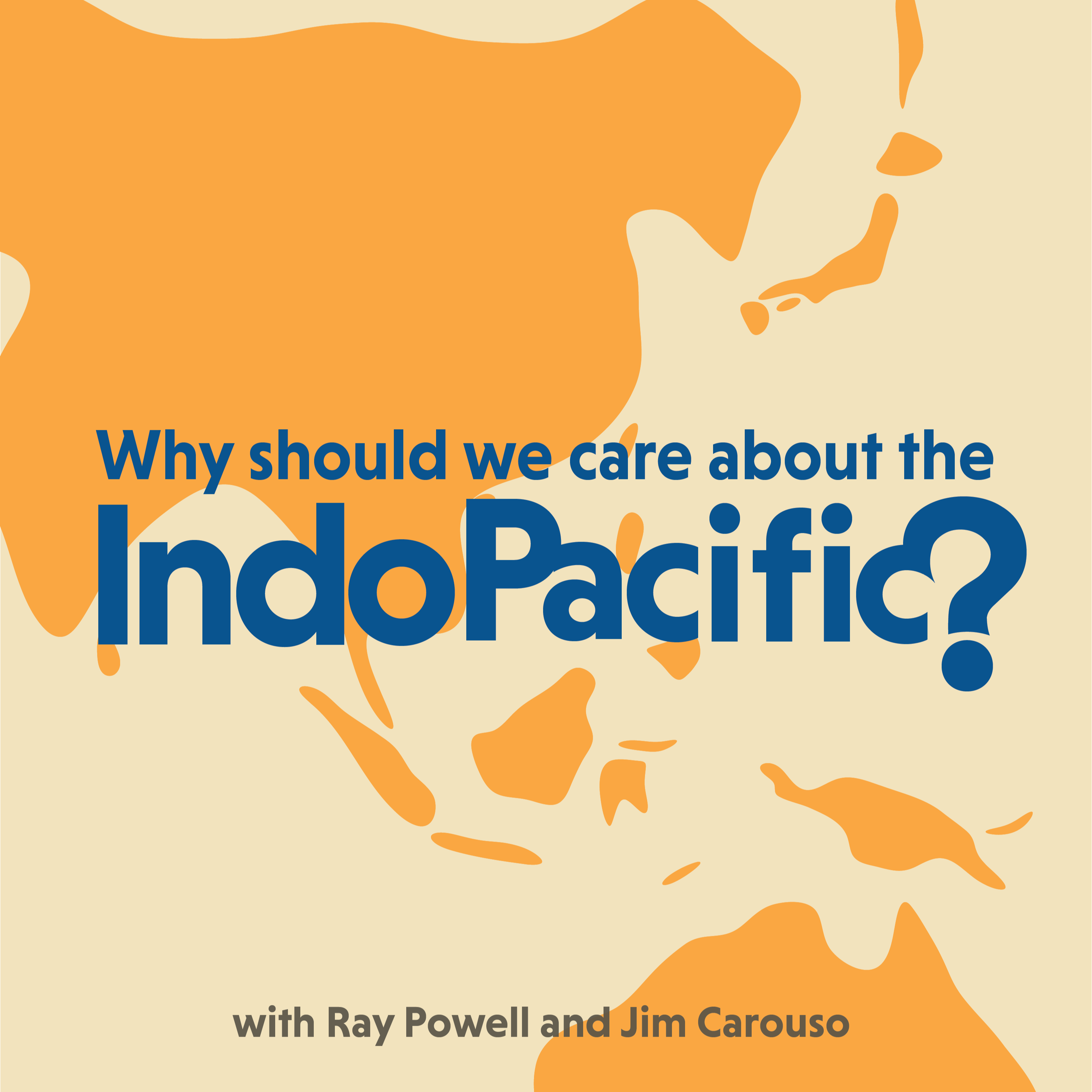
Why Should We Care if AUKUS is at a Crossroads? | with Charlie Edel and Abe Denmark
In this critical episode, host Jim Carouso welcomes two leading experts on the Australia-UK-US (AUKUS) agreement to examine whether the landmark trilateral security partnership can deliver on its promises four years after its launch. Charlie Edel, inaugural Australia Chair at the Center for Strategic and International Studies (CSIS), and Abe Denmark, senior fellow at CSIS and a former DOD official who helped implement AUKUS, join to discuss their new report, "The AUKUS Inflection: Seizing the Opportunity to Deliver Deterrence."The conversation dives deep into five fundamental challenges threatening AUKUS’ success:• Submarine production bottlenecks plague the U.S. industrial base, with maintenance backlogs keeping 25% of attack submarines out of the water. • Sovereignty questions have emerged as Washington reportedly seeks Australian operational commitments for future contingencies. • Australia faces the massive challenge of building a nuclear submarine workforce from scratch—requiring 20,000 new skilled workers in a country with virtually no civilian nuclear industry.• AUKUS “Pillar 2” technology cooperation lacks focus and marquee deliverables despite bureaucratic progress on export controls and information sharing.• Timeline pressures mount as critics question whether AUKUS capabilities will arrive too late for current deterrence needs, with Australian submarine construction not beginning until 2040.The experts propose concrete solutions: appointing AUKUS special representatives reporting directly to leaders in all three countries; creating an AUKUS visa system for seamless researcher mobility; establishing trilateral congressional oversight mechanisms; producing annual progress reports for transparency and accountability; and concentrating Pillar 2 efforts on autonomy, long-range strike and integrated missile defense rather than spreading resources across quantum computing and other emerging technologies that lawmakers struggle to understand.Denmark emphasizes that AUKUS should be viewed as additive rather than subtractive to existing capabilities, with Australian maintenance facilities and industrial contributions helping get more U.S. submarines operational faster. The discussion also touches on recent diplomatic engagements, including Australian Deputy Prime Minister Richard Marles' meetings in Washington amid ongoing U.S. reviews of the partnership.Both experts stress that while AUKUS faces significant implementation challenges, failure would damage U.S. credibility, weaken deterrence, and embolden adversaries. Success requires immediate course corrections, increased funding, and sustained political commitment across all three democracies to deliver meaningful capabilities for Indo-Pacific security.👉 Follow us on X, @IndoPacPodcast, LinkedIn, or BlueSky👉 Follow Jim on LinkedIn👉 Follow Ray Powell on X, @GordianKnotRay, or LinkedIn, or check out his maritime transparency work at SeaLight👉 Sponsored by BowerGroupAsia, a strategic advisory firm that specializes in the Indo-Pacific.
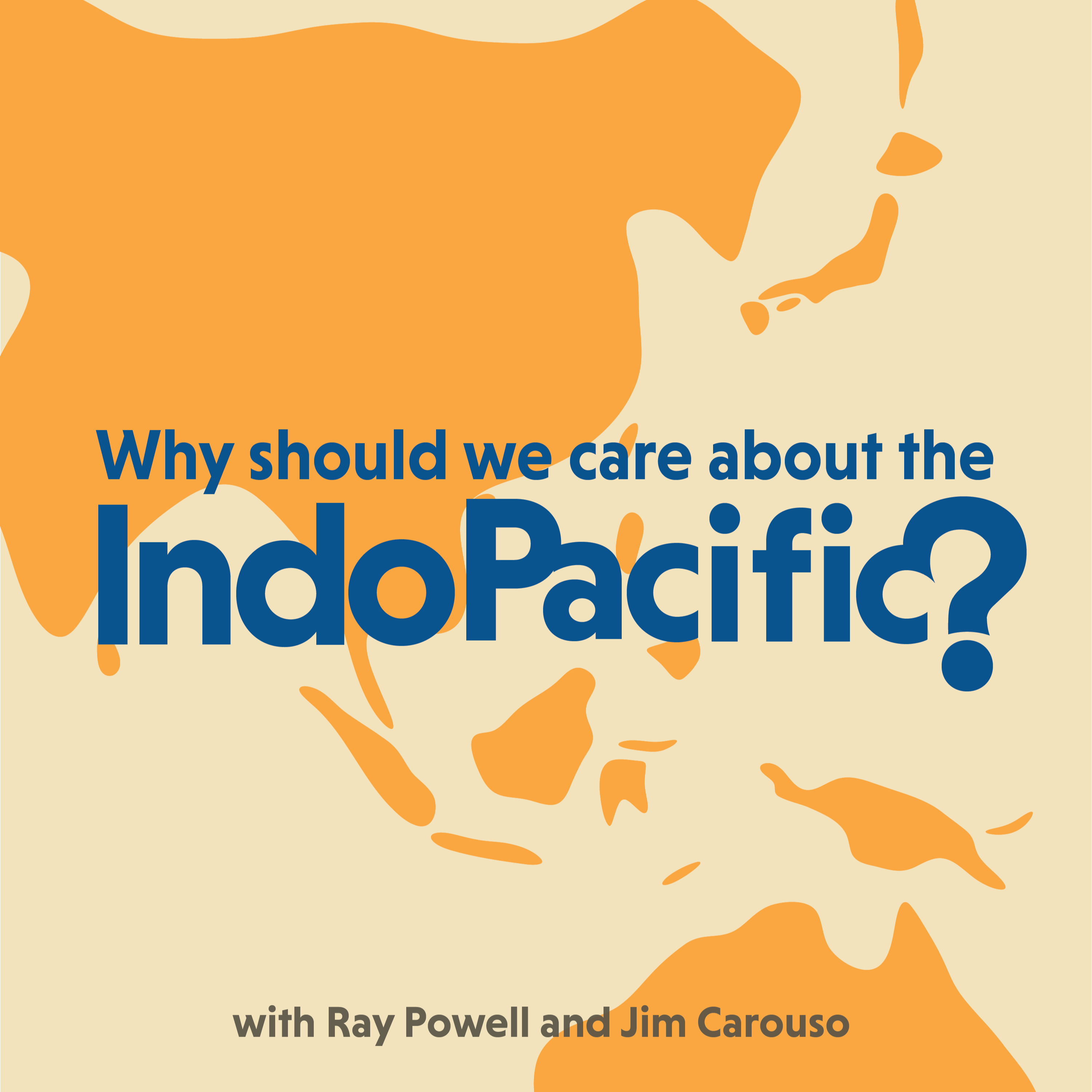
Our 100th Episode! Lessons, Laughter, and Why We Care More than Ever About the Indo-Pacific
In the milestone 100th episode of "Why Should We Care About the Indo-Pacific?", co-hosts Ray Powell and Jim Carouso celebrate their podcast’s century mark with a fast-paced, insightful, and at times humorous look back at some of their most memorable moments, guests, and listener interactions. Without a guest this week, Ray and Jim turn the spotlight on themselves, their audience, their incredible slate of past guests, and a region that keeps changing the strategic map.The hosts set the tone for a reflective and dynamic show, diving into listener emails and social media comments that illustrate the podcast’s loyal following from locations across the globe. Ray and Jim revisit some of the most interesting, provocative, quirky and timely lines from prior guests--including former US National Security Advisor H.R. McMaster, U.S. Pacific Air Forces Commander General Kevin Schneider, former Australian Prime Minister Malcolm Turnbull, President Surangel Whipps of Palau, former U.S. Indo-Pacific Command Commander Admiral Phil Davidson, and sitting Philippine Secretary of Defense Gilbert “Gibo” Teodoro--challenging each other to recall who said what and why those remarks matter in today’s Indo-Pacific landscape.A central theme is the evolving nature of U.S. strategy, from discussions of "spheres of influence" and the shift in national security focus to debates over U.S. credibility and engagement in regions beyond the Indo-Pacific. The hosts analyze how once-standard priorities such as the rules-based order and extended U.S. presence are now questioned domestically and abroad. Listener comments prompt discussion of perceptions of America across the region, concerns over interference, and the shifting balance of great power influence. The episode highlights President Whipps’ steadfast support for Taiwan in the face of Chinese economic inducements--a striking example of Indo-Pacific agency and risk-taking in the current geopolitical climate.Memorable moments include insights from Secretary Teodoro on the critical role of the rules-based order for smaller states, self-deprecating tales of military karaoke anxiety from General Schneider, and a glancing critique of U.S. foreign policy “whiplash,” recalling both Afghanistan and Vietnam withdrawals. The podcast’s ability to draw high-profile guests and engage in candid, sometimes irreverent dialogue is evident as the hosts reminisce. Woven through the humor and storytelling is a serious undercurrent about U.S. credibility, PRC aggression, alliance management, and the centrality of the Indo-Pacific in global affairs.The hosts close with tributes to listeners, their inimitable producer, Ian Ellis-Jones, and their gratitude for reaching 100 episodes amidst rapidly growing listenership--now surpassing 40,000 subscribers across all platforms. As always, we encourage feedback and celebrate our incredible audience, and promise to continue featuring the perspectives and stories that matter most to Indo-Pacific watchers.👉 Follow us on X, @IndoPacPodcast, or LinkedIn👉 Follow Ray Powell on X, @GordianKnotRay, LinkedIn, or check out his work at SeaLight👉 Follow Jim Carouso on LinkedIn👉 Sponsored by BowerGroupAsia
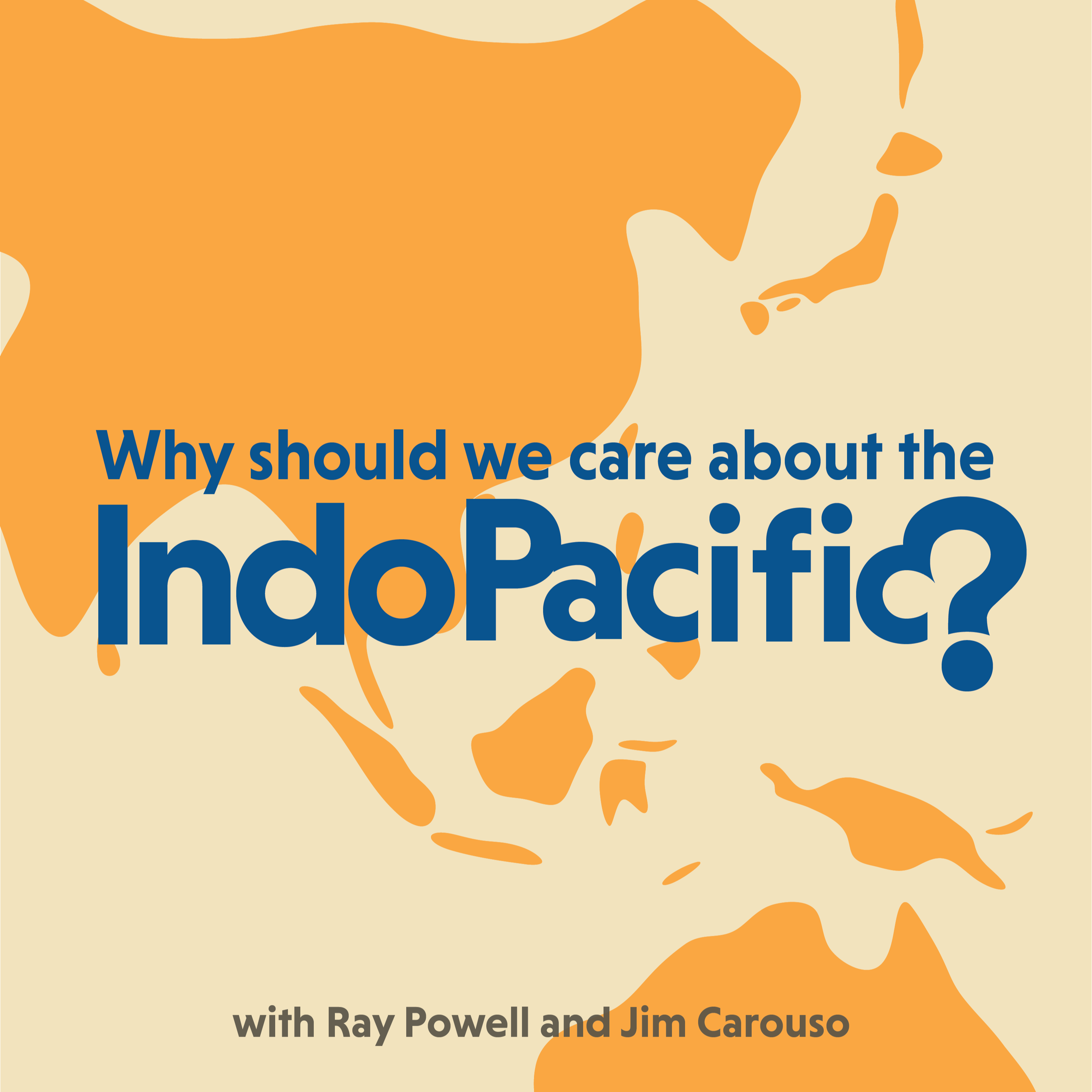
Why Should We Care if the U.S.-India Relationship Melts Down? | with Josh Rogin
In this compelling episode, co-hosts Ray Powell and Jim Carouso welcome lead global security analyst for Washington Post Intelligence Josh Rogin, who explores the escalating tensions and complexities behind the dramatic recent breakdown in U.S.-India relations. The episode zeroes in on the significant diplomatic and very personal rift that has emerged between the two leaders, Donald Trump and Narendra Modi, and unpacks the broader strategic implications for Indo-Pacific stability.Rogin gives a reporter’s analysis of the core issues driving the U.S.-India split, including Prime Minister Modi’s recent trip to Beijing for meetings with some of America’s biggest rivals. This shift signals India’s resistance to U.S. pressure for a trade deal it deems unfavorable. Despite Modi’s previous close rapport with President Trump, contentious issues—such as Trump’s tariff threats and bold proclamations about his role in India's recent conflict with Pakistan—have frozen negotiations and strained bilateral ties to the breaking point.The discussion highlights the internal U.S. political dynamics behind the breakdown, pointing out the absence of India experts in the president’s inner circle and the dominance of transactional diplomacy focused on short-term deals rather than sustained strategic partnerships. Rogin emphasizes that the rupture is deeply personal between Trump and Modi, with consequences extending beyond bilateral relations to affect the entire Indo-Pacific geopolitical landscape.Listeners gain valuable insights into how tariff policies, trade conflicts, and diplomatic miscommunications have undermined 25 years of efforts to integrate India more closely with Western alliances. The episode also examines how this strain jeopardizes multilateral cooperation frameworks like the Quad, complicating efforts to present a united front against China’s growing influence in the region.The hosts take advantage of Josh’s long experience covering Japan to explore Tokyo’s leadership challenges in sustaining regional cooperation within the Quad framework and balancing domestic political pressures with larger strategic goals.This episode delivers a nuanced and timely examination of why the U.S.-India relationship is vital for Indo-Pacific security, trade, and diplomacy—the potential unraveling of which could have profound global repercussions. Ideal for policy experts, business leaders, and anyone interested in international relations, this episode offers a thoughtful analysis of the personal, political, and strategic forces shaping the future of U.S.-India ties and the broader Indo-Pacific region.Tune in for an engaging conversation that unpacks the personal disputes and political complexities defining one of the most critical alliances of the 21st century.👉 Follow Josh Rogin on X, @joshrogin, or on LinkedIn👉 Follow Ray Powell on X, @GordianKnotRay, or LinkedIn👉 Follow Jim Carouso on LinkedIn👉 Sponsored by BowerGroupAsia
Create Your Podcast In Minutes
- Full-featured podcast site
- Unlimited storage and bandwidth
- Comprehensive podcast stats
- Distribute to Apple Podcasts, Spotify, and more
- Make money with your podcast







